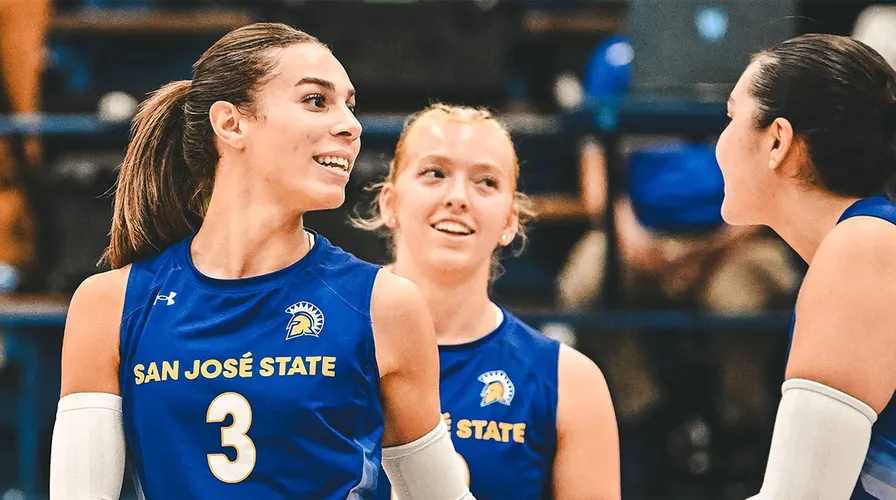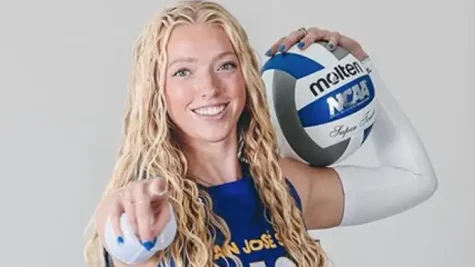
Charlotte Yeskulsky | Head Editor
October 24, 2024
The situation at San Jose State University (SJSU) involving the volleyball team and the legal battles surrounding transgender athletes highlights the complex intersection of safety, politics, and sports. The controversy centers around Brooke Slusser, a junior player who recently discovered that a teammate, Blaire Fleming, is a transgender female. This revelation prompted Slusser to join a lawsuit against the NCAA, led by former college swimmer Riley Gaines, which claims a lack of transparency regarding the inclusion of transgender athletes in women’s sports.
The lawsuit alleges that SJSU failed to inform its recruits about the presence of a transgender athlete on the team, creating an unsafe and uncomfortable environment for players like Slusser. She has voiced concerns about Fleming’s physical dominance, citing instances where other players have been injured during matches. These issues have raised alarms about fairness and safety in women’s sports, particularly in light of Fleming’s athletic background, which critics argue gives her a competitive edge that could lead to serious injuries among other players.

Most recently, Slusser’s involvement in the lawsuit has drawn significant backlash, culminating in a disturbing death threat just before a game against Colorado State. This incident prompted SJSU to ramp up security measures, with increased police presence at home and away games to protect the athletes. When asked for her opinion, senior April Smith commented that she “Couldn’t imagine how difficult this situation must be for both girls.” The university has committed more effort to ensure Brooke’s and Blaire’s safety as the issue continues to attract controversial attention.
The fallout from the lawsuit has also led to several teams forfeiting games against SJSU in protest of Fleming’s inclusion, intensifying the debate around gender identity in college athletics. As the University of Nevada prepares to face SJSU on October 26, it grapples with its legal obligations tied to Nevada’s Equal Rights Amendment, complicating the situation even further.
As emotions run high on both sides, the focus has shifted from the game itself to broader social and political discussions, with Slusser’s safety and the future of transgender athletes in women’s sports under intense scrutiny. SCHS student Coco Bush had a different take on the controversy. Coco felt that there is “a positive to this situation” and that it is “bringing attention to women’s volleyball.” Ultimately, whether you view Slusser and Fleming’s stance as a stand for the sanctity of women’s sports or see it as discriminatory, the outcome of this legal battle could set significant precedents for college athletics nationwide.

Leave a Reply